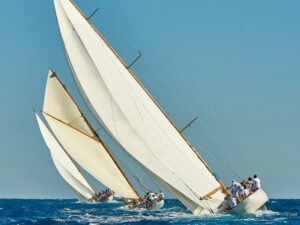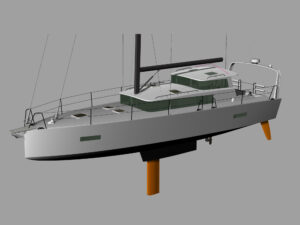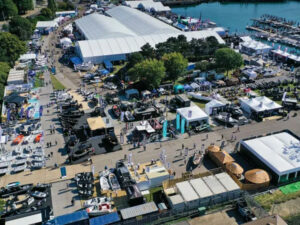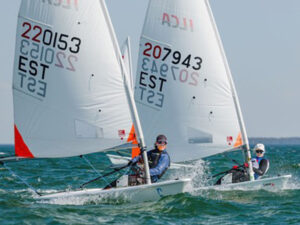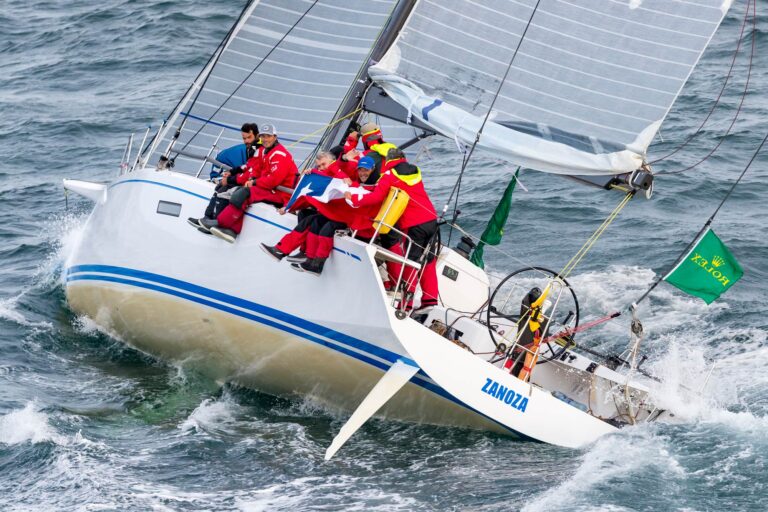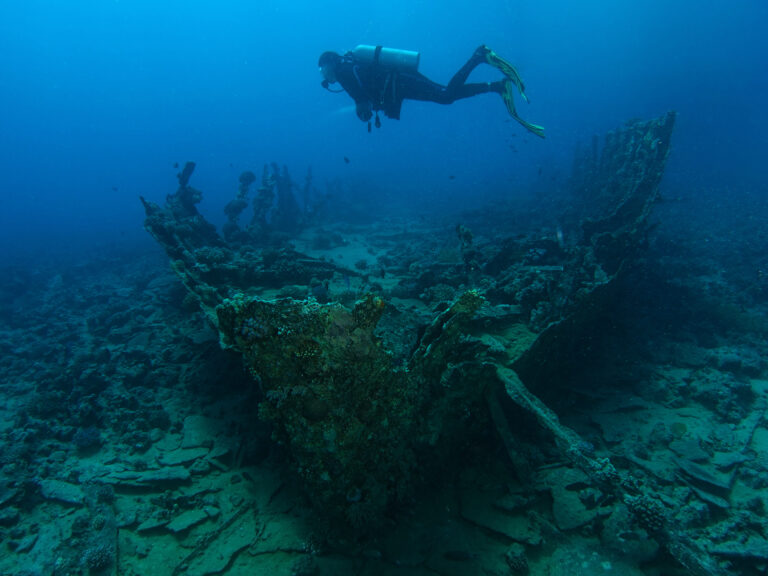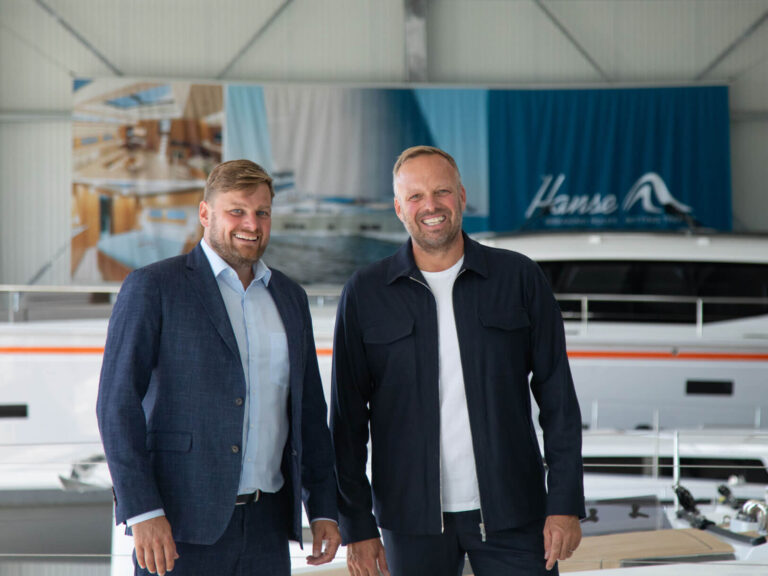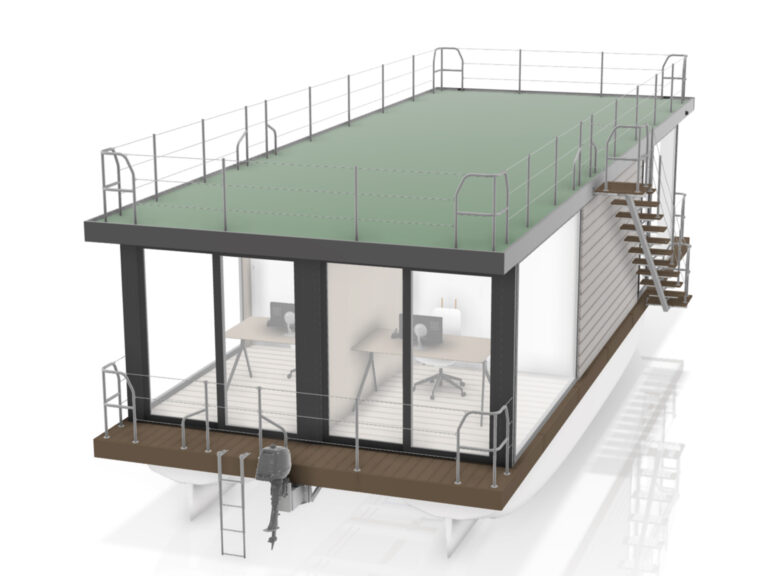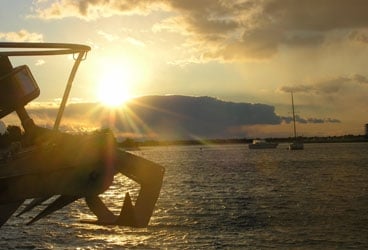
Osprey Sea change 368
Yesterday, a hawk landed high in an oak tree on the creek bank, chased by a small storm of birds. It tried to hide in the leaves, but they wouldn’t let it be. The hawk shook its feathers, then shifted to a new branch, its eyes ever searching the sky beyond even while those birds harassed it to distraction. I know exactly how that hawk felt.
It’s about 40 degrees F and raining sideways. The loose ends we thought we’d tidied up keep fraying, and they seem to be getting longer. An insurance company suddenly needs a survey, above and beyond what we did a month ago while we were hauled out. A check that was supposed to arrive hasn’t. The bloodletting at the bank continues as we purchase the spares and charts we don’t have. We wanted to be gone a week ago, yet here we sit, in rain that’s nearly sleet, tied to a dock in Annapolis, Maryland.
My husband, Johnny, has this saying that bad things happen when you get close to land. He means, of course, that land, and its extensions, like reefs and docks, are unforgiving hard objects. But speaking figuratively, he’s talking about the invisible outcroppings that snag you unawares. You return to do something necessary-visit your family, pay your taxes, repair whatever’s broken-and suddenly all those birds have you stuck in the tree, even while your eyes search for the clear sky.
And yet, I’m happy. It’s an amazing thing, the sea change in me and in our family over the past year of sailing and living aboard full-time on Osprey. A year ago, when we left this same place at about this same time, we were financially stable but an emotional Chernobyl. We felt very little exhilaration in finally freeing ourselves, only exhaustion and overwhelming uncertainly about the future. The dark thought lingered that perhaps we’d made a terrible decision and we couldn’t do this after all. We knew so little about where we were going, and it was so hard to let go of where we’d been.
This year, we leave in exactly the opposite condition: in the midst of a financial meltdown, thanks to that freshman year of unexpected expensive boat problems, but feeling emotionally strong. I much prefer it this way. Money we can figure out. Happiness is the ticklish part.
I admire the hell out of people who can just go, jumping right into a transatlantic passage or making a beeline for the Panama Canal and the Pacific, quitting land cold turkey right from the start. I’d hoped that I was that way, but when we left last year, I learned that I wasn’t, at least not then. I still felt tied to “home,” to land, to those ways of living. I was timid; I never wanted to stray too far. I don’t think the kids felt that way; they’re so resilient, so hopeful, so able to live in the moment. Nor do they bear the burden of responsibility. They’re like I used to be when I’d be racing offshore with a bunch of big guys: a participating member of the crew, but one who could always turn to those big guys for help. Now, suddenly, all was changed. I didn’t have those guys. I had my husband, my kids, and me. All the decisions, and all the responsibility, fell to Johnny and me. It made me vulnerable in a way I hadn’t known before.
Johnny was wise enough to say it’s OK, let’s go slow, and so we did. Yet all the while, we still pushed our personal envelopes. The learning curve, as steep as that first climb in a roller coaster, grew less scary and more exciting. We took small steps, but they started to add up. By the end of our first year, I looked back at where we’d started and realized how far we’d come. And it felt fine, really fine.
So even as we wait here like the hawk in that tree and battle the nagging birds of land, there’s a warm anticipation in me that won’t be denied. Now, this time, I know we can do this. Now, I know we can-and will-fly.
Unlike the hawk in the tree, Osprey has taken flight, left Annapolis, and is heading southward.

